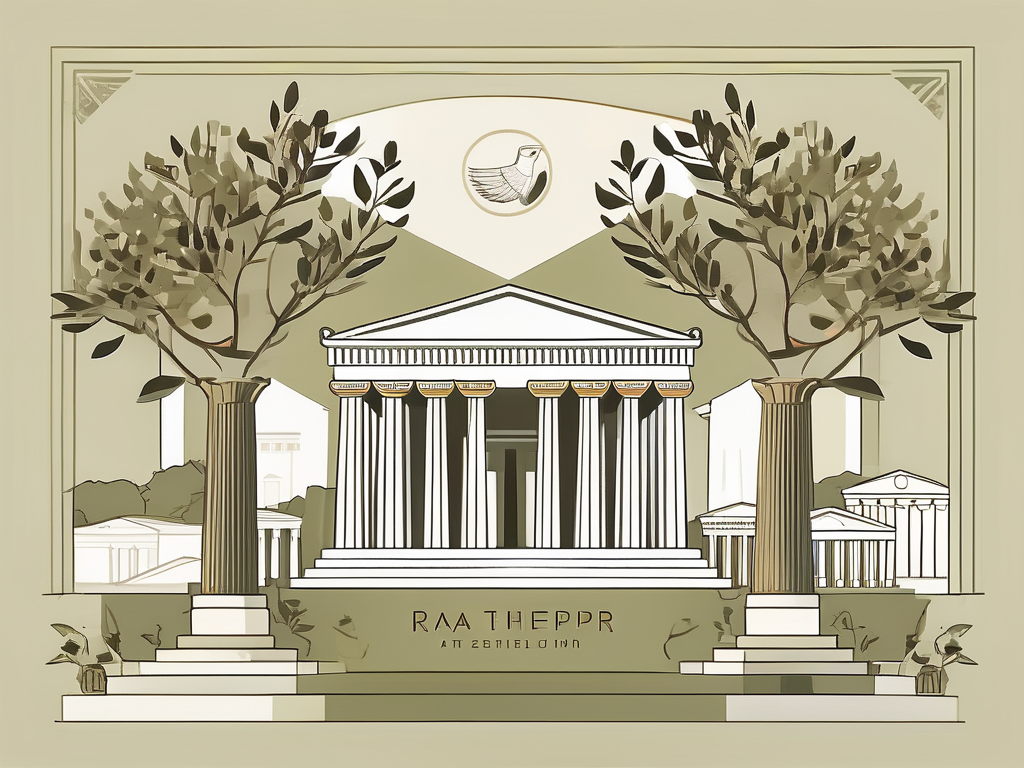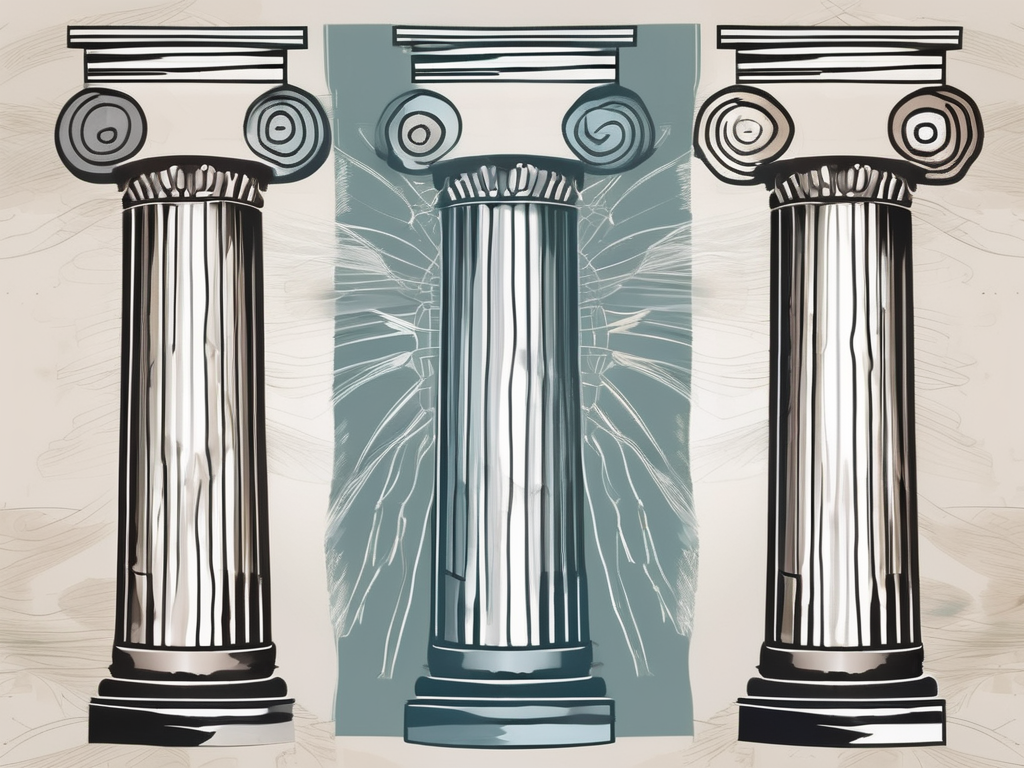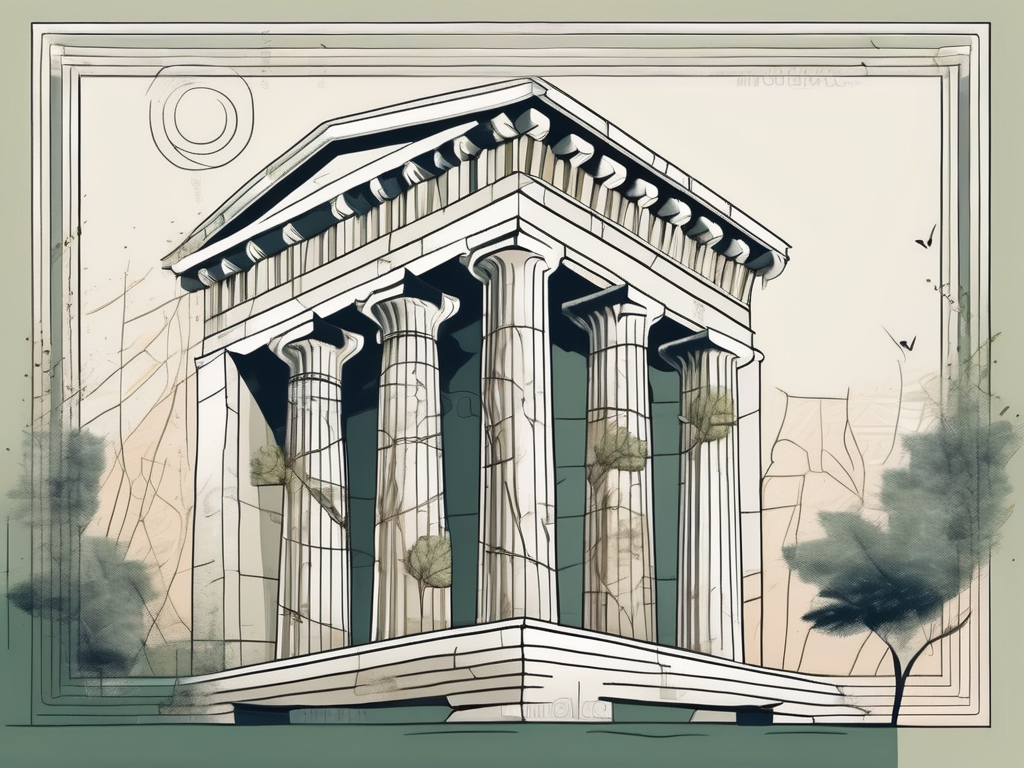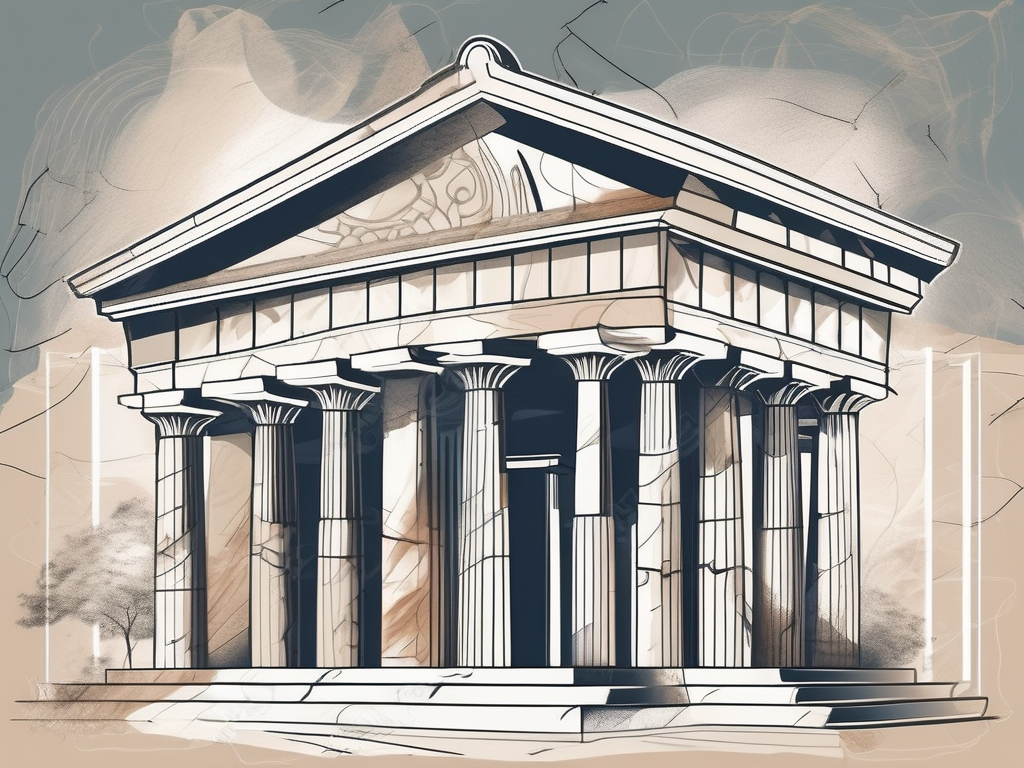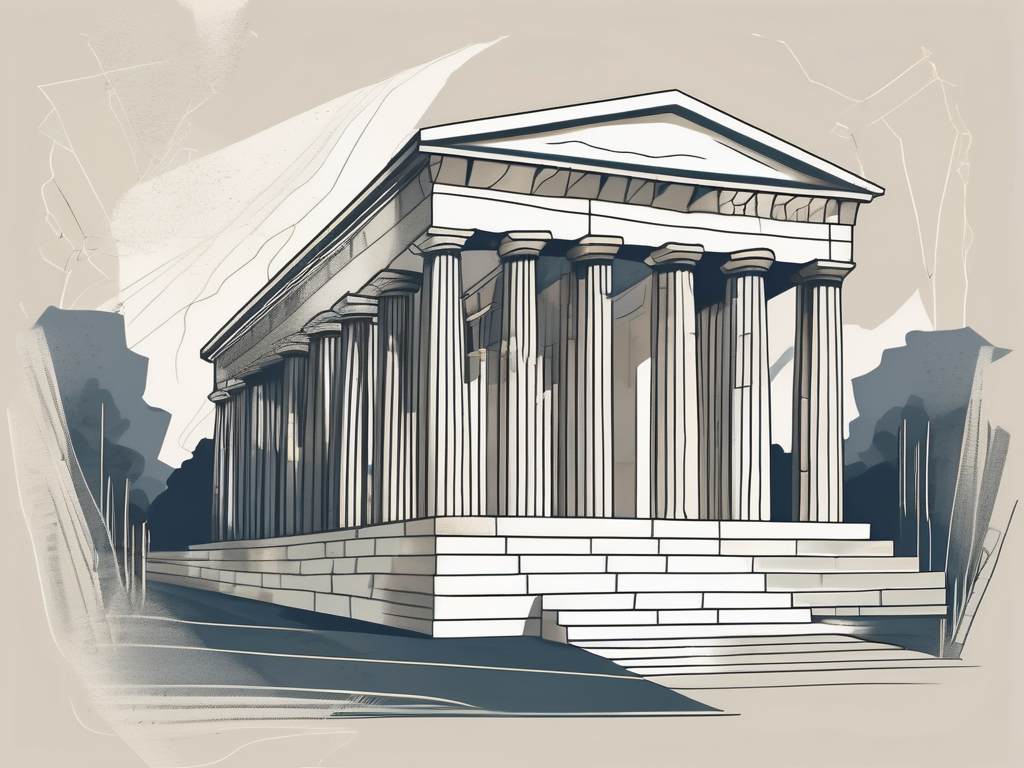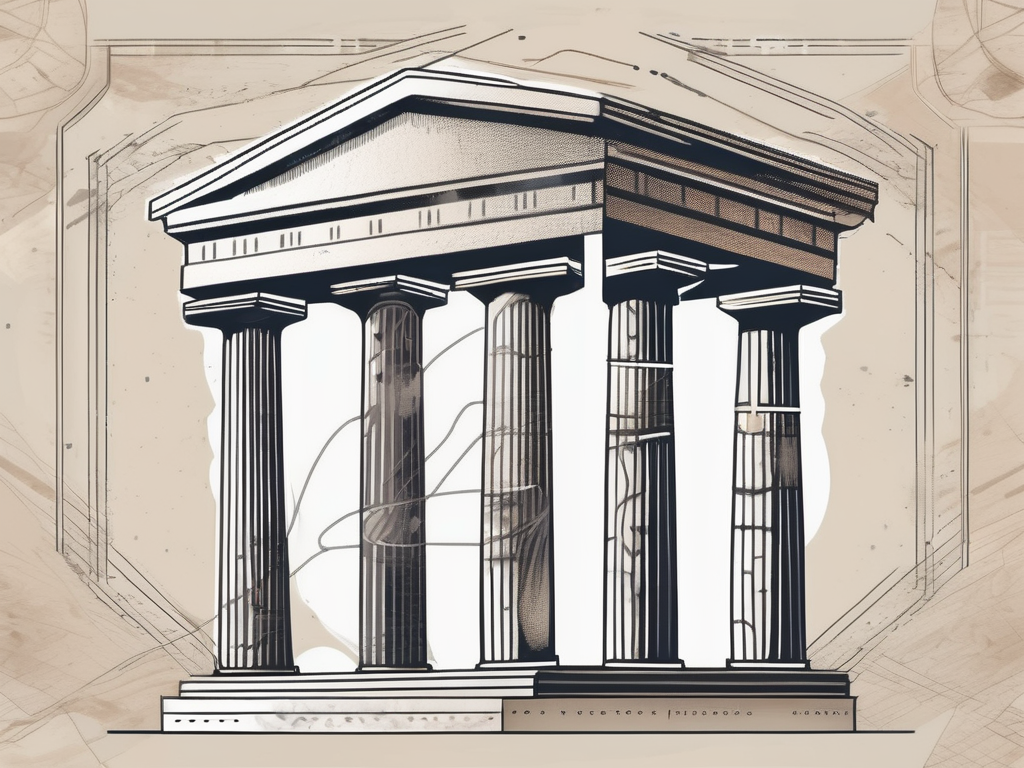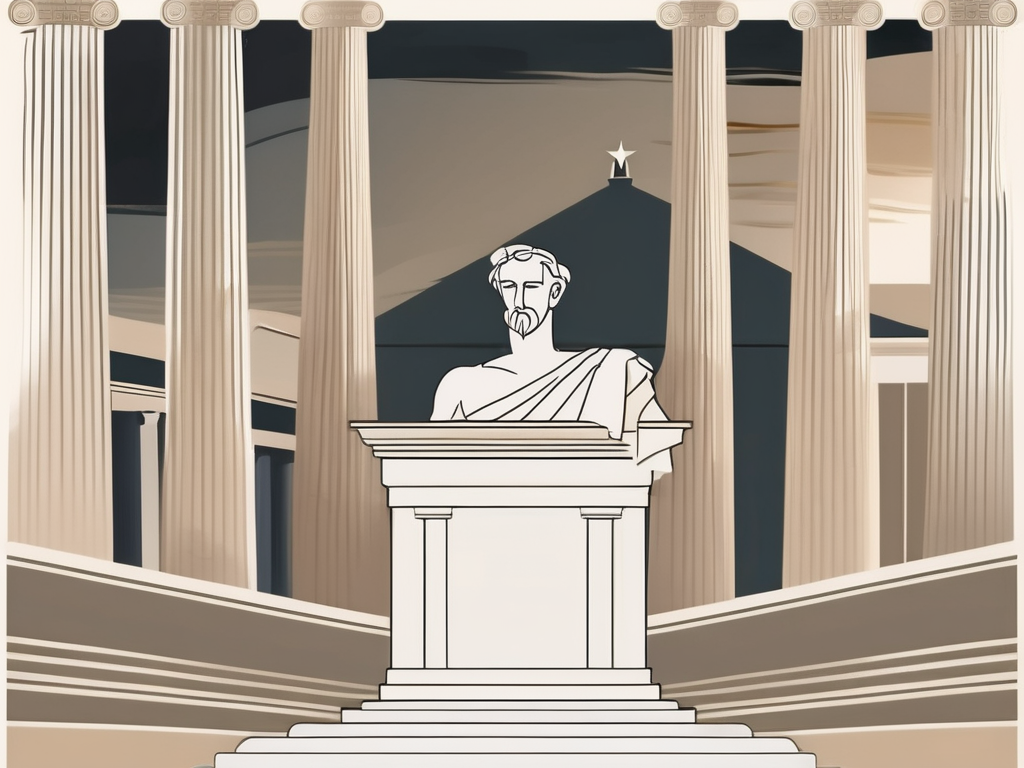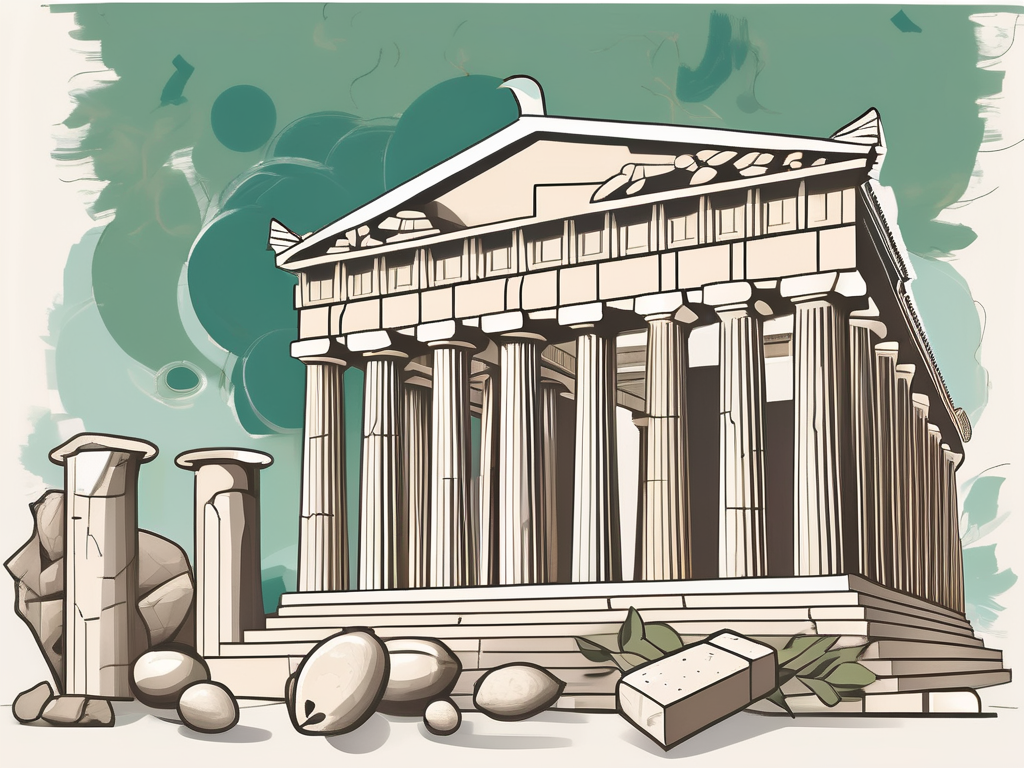Greek philosophy is one of the cornerstones of Western intellectual and philosophical thought. It has shaped and influenced our understanding of the world, our place in it, and the nature of reality. In this comprehensive guide, we will take a closer look at some of the best Greek philosophers who have left an indelible mark on human history.
Understanding Greek Philosophy
Before we delve into the lives and ideas of the greatest Greek philosophers, it is important to understand the origins and impact of Greek philosophy. The ancient Greeks were known for their love of knowledge and inquiry, seeking to understand the fundamental principles that govern the universe. From these intellectual pursuits emerged a rich tradition of philosophical thought that continues to resonate with us today.
The ancient Greeks, with their insatiable curiosity, embarked on a journey of intellectual exploration that would forever shape the course of human thought. They sought to unravel the mysteries of the cosmos, to understand the nature of existence, and to uncover the underlying principles that govern the world around us. In doing so, they laid the foundation for what would become one of the most influential intellectual movements in history.
The Origins of Greek Philosophy
The birth of Greek philosophy can be traced back to the 6th century BCE, to a group of thinkers known as the Pre-Socratic philosophers. These early pioneers of philosophical thought were the first to challenge traditional myths and religious explanations in favor of rational and logical explanations for natural phenomena. They sought to understand the world through observation, reason, and critical thinking.
Thales of Miletus, one of the prominent Pre-Socratic philosophers, believed that water was the fundamental substance from which all things were derived. Anaximander, another influential thinker, proposed that an infinite, boundless substance called the “apeiron” was the source of all existence. These early philosophers laid the groundwork for a new way of thinking, one that would prioritize reason and evidence over superstition and tradition.
The Impact of Greek Philosophy on Modern Thought
Greek philosophy had a profound influence on the development of Western thought. Many of the concepts and ideas put forth by the ancient Greeks continue to shape our understanding of the world. From ethics to metaphysics, Greek philosophy has provided a solid framework for exploring important questions about the nature of reality, morality, and the purpose of human existence.
One of the most enduring legacies of Greek philosophy is the concept of democracy. The ancient Greeks, particularly thinkers like Socrates, Plato, and Aristotle, explored the idea of a just society and the role of the individual within it. Their ideas laid the groundwork for the development of democratic systems, which have since become a cornerstone of modern governance.
Furthermore, Greek philosophy has greatly influenced our understanding of ethics and morality. The ethical theories put forth by philosophers such as Socrates and Aristotle continue to shape our discussions on what is right and wrong, and how we should live our lives. Their emphasis on virtue, reason, and the pursuit of knowledge has had a lasting impact on our moral frameworks.
Metaphysics, the branch of philosophy concerned with the nature of reality, owes much to the Greek philosophers. The concept of the “forms” put forth by Plato, and the idea of substance and essence explored by Aristotle, have shaped our understanding of the world and our place within it. These philosophical inquiries into the nature of being continue to inspire and challenge us to this day.
In conclusion, Greek philosophy is a testament to the power of human curiosity and intellectual exploration. The ancient Greeks sought to understand the world and our place within it, and in doing so, they laid the foundation for centuries of philosophical inquiry. Their ideas continue to shape our understanding of the world, and their legacy serves as a reminder of the importance of critical thinking and rational inquiry in our pursuit of knowledge.
The Pre-Socratic Philosophers
The Pre-Socratic philosophers were the pioneers of Greek philosophy, challenging conventional wisdom and laying the groundwork for the philosophical discourse that would follow.
These early thinkers sought to understand the world around them through rational and observable means, rejecting the prevailing mythical explanations that had dominated Greek culture for centuries. Their groundbreaking ideas paved the way for the development of scientific inquiry and critical thinking.
Thales of Miletus: The First Philosopher
Thales of Miletus is widely considered the first philosopher in Greek history. Born in the 6th century BCE, he was a prominent figure in the city of Miletus, known for his keen intellect and insatiable curiosity.
Thales believed that water was the fundamental substance from which all things emerged. He observed that water is essential for life and that it exists in various forms, such as vapor, liquid, and solid. By recognizing the importance of water in sustaining life and its ability to transform into different states, Thales laid the foundation for a new era of scientific inquiry.
His philosophical ideas were revolutionary for his time, as they challenged the prevailing belief in mythical gods and divine explanations for natural phenomena. Thales encouraged his fellow Greeks to question the world around them and seek rational explanations based on observation and evidence.
Heraclitus and the Philosophy of Change
Heraclitus, a philosopher from Ephesus in the 5th century BCE, embraced change as the fundamental nature of the universe. He believed that everything is in a constant state of flux, and that change is the driving force behind existence.
Heraclitus famously stated, “You cannot step into the same river twice.” This profound statement encapsulates his philosophy, emphasizing the ever-changing nature of reality. According to Heraclitus, the river is constantly flowing, and each time we step into it, it is a different river. This notion challenges traditional notions of stability and permanence.
His philosophy of change extended beyond the physical world and into the realm of human existence. Heraclitus believed that individuals are constantly evolving, both physically and intellectually. He emphasized the importance of adapting to change and embracing the transformative nature of life.
Democritus and the Concept of Atomism
Democritus, a philosopher from Abdera in the 5th century BCE, proposed a theory called atomism. He postulated that the universe is made up of indivisible particles called atoms, which are the building blocks of all matter.
According to Democritus, atoms are constantly in motion, colliding and combining to form different configurations. This perpetual motion gives rise to the diversity we see in the world. His ideas laid the foundation for modern atomic theory, which revolutionized our understanding of the physical world.
Democritus’ concept of atomism challenged the prevailing belief in the four elements (earth, air, fire, and water) as the fundamental constituents of matter. By proposing that matter is composed of tiny, indivisible particles, Democritus paved the way for future scientific advancements in the field of chemistry.
His philosophical ideas also had implications beyond the realm of physics. Democritus believed that human behavior could be explained by the interactions of atoms in the body. He argued that our thoughts, emotions, and actions are the result of atomic movements in the brain, foreshadowing modern theories in neuroscience and psychology.
The Classical Philosophers
The Classical philosophers built upon the ideas of their predecessors, delving deeper into questions of ethics, politics, and the nature of knowledge.
Socrates: The Father of Western Philosophy
Socrates is perhaps the most famous Greek philosopher of all time. He questioned traditional beliefs and encouraged critical thinking, seeking to uncover the truth through reasoned dialogue. Socrates believed that true knowledge comes from examining one’s own beliefs and engaging in intellectual discourse with others.
Plato and the Theory of Forms
Plato was a student of Socrates and went on to become one of the most influential philosophers in history. He developed the theory of Forms, positing that there is an ideal realm of unchangeable, perfect forms that exist beyond the physical world. Plato’s philosophy had a profound impact not only on subsequent philosophers but also on Christian thought and medieval philosophy.
Aristotle and the Philosophy of Realism
Aristotle, a student of Plato, diverged from his teacher’s idealism and focused on the study of the natural world. He developed a systematic approach to knowledge that emphasized empirical observation and logical reasoning. Aristotle’s works encompassed a wide range of subjects, including ethics, politics, and metaphysics.
The Hellenistic Philosophers
The Hellenistic period saw the rise of new philosophical schools and ideas that sought to address the existential concerns of individuals living in a rapidly changing world.
Epicurus and the Pursuit of Pleasure
Epicurus believed that the ultimate goal of life is to achieve happiness and tranquility through the pursuit of pleasure, particularly intellectual and spiritual pleasures. He advocated for a simple and modest lifestyle, free from unnecessary desires and fears. Epicurus’ philosophy centered around the idea that pleasure is the highest good.
Zeno of Citium and the Birth of Stoicism
Zeno of Citium founded the philosophy of Stoicism, which teaches that virtue and wisdom are the keys to a good and meaningful life. Stoicism emphasizes the importance of cultivating inner strength and resilience, regardless of external circumstances. Zeno’s teachings have found resonance throughout history, particularly during times of adversity.
Plotinus and the Philosophy of Neoplatonism
Plotinus was a philosopher who sought to reconcile the teachings of Plato with aspects of mysticism and spirituality. He proposed a hierarchical model of reality, with the ultimate reality being the One, from which all things emanate. Plotinus’ philosophy, known as Neoplatonism, had a profound influence on later mystical and religious traditions.
